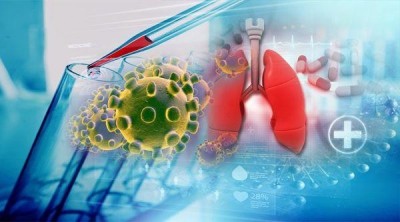New York, Sep 6 : Multisystem inflammatory syndrome in children (MIS-C), believed to be linked to Covid-19, damages the heart to such an extent that some children will need lifelong monitoring and interventions, warn researchers.
According to the review, published in EClinicalMedicine, a journal of The Lancet, case studies also show MIS-C can strike seemingly healthy children without warning three or four weeks after asymptomatic infections.
“Children did not need to exhibit the classic upper respiratory symptoms of Covid-19 to develop MIS-C, which is frightening,” said study author Alvaro Moreira from The University of Texas in the US.
“Children might have no symptoms, no one knew they had the disease, and a few weeks later, they may develop this exaggerated inflammation in the body,” Moreira added.
For the findings, the research team reviewed 662 MIS-C cases reported worldwide between January 1 and July 25.
The researchers found that 71 per cent of the children were admitted to the intensive care unit (ICU) and at least 60 per cent presented with shock.According to the study, the average length of stay in the hospital was 7.9 days and 100 per cent had a fever, 73.7 per cent had abdominal pain or diarrhoea, and 68.3 per cent suffered from vomiting.
The findings also showed that 22.2 per cent of the children required mechanical ventilation and 4.4 per cent required extracorporeal membrane oxygenation (ECMO). Also, 11 children died.
“This is a new childhood disease that is believed to be associated with SARS-CoV-2,” Moreira said.
“It can be lethal because it affects multiple organ systems. Whether it be the heart and the lungs, the gastrointestinal system or the neurologic system, it has so many different faces that initially it was challenging for clinicians to understand,” Moreira added.
The amount of inflammation in MIS-C surpasses two similar pediatric conditions, Kawasaki disease and toxic shock syndrome.
“The saving grace is that treating these patients with therapies commonly used for Kawasaki – immunoglobulin and glucocorticosteroids – has been effective,” D Moreira said.
Most of the 662 children suffered cardiac involvement as indicated by markers such as troponin, which is used with great accuracy in adults to diagnose heart attacks.
“Almost 90 per cent of the children (581) underwent an echocardiogram because they had such a significant cardiac manifestation of the disease,” the researchers said.
The damage included dilation of coronary blood vessels, a phenomenon also seen in Kawasaki disease. Almost 10 per cent of children had an aneurysm of a coronary vessel.
Children with an aneurysm are at the most risk of a future event.
“Evidence suggests that children with MIS-C have immense inflammation and potential tissue injury to the heart, and we will need to follow these children closely to understand what implications they may have in the long term,” the team noted.
Disclaimer: This story is auto-generated from IANS service.

